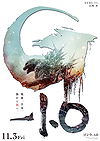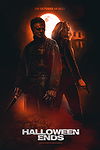darkolordeAdd darkolorde as a frienddarkolorde will be notified and will have to accept this friendship request, to view updates from darkolorde and their ratings you must follow them. |
About me
Não sou critico, nem pessimista, apenas um apreciador de filmes, series e cartoons. Fique a vontade pra concordar ou discordar de minhas opiniões. Geralmente gosto de filmes puxado pra humor negro (Bastardos Inglorious) ou ação non-stop (Madmax por exemplo), mas é sempre bom ver coisas filosóficas ou pensativas. Aceito recomendações :)I'm not critical or pessimistic, just a lover of movies, series and cartoons. Feel free to agree or disagree with my opinions.I usually like movies drawn to black humor (Inglourious Basterds) or non-stop action (Madmax for example), but it's always good to see philosophical or thoughtful things. I accept recommendations :)
some films are not allocated in the LISTAL, you can check the other reviews at this link: letterboxd.com/Darko_Lorde/
No soy crítico, ni pesimista, sólo un apreciador de películas, series y historietas. Siéntase libre de acuerdo o no con mis opiniones.En general, me gustan las películas tiradas para el humor negro (Bastardos Inglorios) o la acción no-stop (Madmax por ejemplo), pero siempre es bueno ver cosas filosóficas o pensativas. Acepto las recomendaciones :)
Occupation: student
About my collections
ANIMES/MANGÁS: myanimelist.net/profile/Darko_LordeJOGOS:
www.backloggd.com/u/DonSilver/
Lists
|
6 votes
Melhores Filmes Nacionais (Brasil)
(21 items)Movie list by darkolorde Published 2 years, 7 months ago
 2 comments
2 comments1 votes
Dropped Tv Shows
(11 items)Tv list by darkolorde Published 2 years, 10 months ago
 5 comments
5 comments8 votes
TV SHOWS WATCHED 2022
(23 items)Tv list by darkolorde Published 3 years, 5 months ago
 2 comments
2 comments |
Movies
Top rated |
 My movies page My movies page Rated 724 movies Rated 724 movies |
Recent reviews
The re-imagining godzilla
 Posted : 1 year ago on 8 June 2024 01:20
(A review of Godzilla Minus One )
Posted : 1 year ago on 8 June 2024 01:20
(A review of Godzilla Minus One ) 2 comments, Reply to this entry
2 comments, Reply to this entry
The truth will be surface
 Posted : 1 year, 7 months ago on 24 November 2023 12:45
(A review of Silo)
Posted : 1 year, 7 months ago on 24 November 2023 12:45
(A review of Silo)No one is allowed to leave the Silo, but if they want to, they can. Very rarely does someone decide to leave. They get a spacesuit and are taken to the surface. One character makes this journey, and like everyone else, collapses after a few minutes outside, all in full view of the cameras, accompanied by the population. It's not clear who built the Silo. The History of the Silo only goes 140 years into the past, when a rebellion erased all records of the previous civilization.
In Silo, our protagonist is Juliette Nichols (Rebecca Ferguson), an engineer who becomes sheriff due to a series of violent circumstances and uses the opportunity to try to shed light on the death of her ex-boyfriend, a questioning man who may have upset the powerful in his search for the truth.
It seems that we've already seen this in other works of the genre. But in Silo we don't have shabby people, sickly children and widespread hunger, as is usually the case in this type of movie. Silo has agricultural and agrarian areas, everyone has food, water and electricity. For dramatic purposes, they just don't have elevators, the people on the upper floors don't mix with those on the lower floors, purely for geographical reasons.
Nor is there an oppressive dictatorial society, although there is an imbalance between the powers and the Judiciary is frowned upon by the other powers and by the population, with a Judge, head of the Judiciary, even confronting the Mayor, and yes we are still talking about the fictional series.
There's no sense of urgency to leave the Silo, it's a rigidly controlled society in some respects (birth control, for example, which is understandable). The protagonist is driven much more by curiosity than necessity, and we're along for the ride. Visually, Silo had all the makings of being claustrophobic and monotonous, but features like placing large screens on every floor showing the exterior, even if it's desolate, give it the feeling of a spaceship rather than a building. Which is pretty cool.
Conclusion
Silo is a post-apocalyptic mystery series, it avoids the biggest clichés of the genre, it doesn't have artificially unsympathetic characters, and above all, Rebecca Ferguson's character Juliette isn't a "Mary Sue", she's not the right person who never makes a mistake and wins everything on a plate.
I haven't read the books yet, but as far as I know they are chronologically different from the presentation of the series, which seems to be leaner, at least in this initial arc. I'll be reading the books very soon so that I can see the differences more clearly.
 0 comments, Reply to this entry
0 comments, Reply to this entry
Let the poor Myers rest in peace
 Posted : 2 years, 8 months ago on 15 October 2022 04:59
(A review of Halloween Ends)
Posted : 2 years, 8 months ago on 15 October 2022 04:59
(A review of Halloween Ends) Jamie lee curtis i'm so sorry but the last 10 minutes is not enough for me to forgive corey's ugly ass & allyson cringy for the most part of the movie.
And I hope they don't make more sequels to the franchise, let poor Myers rest!
 0 comments, Reply to this entry
0 comments, Reply to this entry
Thor: Not Love and Terrible Jokes
 Posted : 2 years, 11 months ago on 23 July 2022 04:39
(A review of Thor: Love and Thunder)
Posted : 2 years, 11 months ago on 23 July 2022 04:39
(A review of Thor: Love and Thunder)Wink-nudge humour feels smug throughout and mostly misses the mark. Natalie Portman absolutely shafted. Korg becomes irritating beyond belief. Cringeworthy more than anything else.
Bale’s death gives us a glimpse of the movie this could’ve been if we’d gone more than half an inch below the surface of anything. Crowe’s drunken Greek uncle was good fun, can’t wait to see that joke flogged to death in the next film.
Ragnarok was a good film, but Love and Thunder this just ended up looking desperate to be funny.
 0 comments, Reply to this entry
0 comments, Reply to this entry
The Lighthouse
 Posted : 5 years, 3 months ago on 25 March 2020 05:43
(A review of The Lighthouse)
Posted : 5 years, 3 months ago on 25 March 2020 05:43
(A review of The Lighthouse) 0 comments, Reply to this entry
0 comments, Reply to this entry
Clássico Épico
 Posted : 6 years, 1 month ago on 22 May 2019 02:10
(A review of Spartacus)
Posted : 6 years, 1 month ago on 22 May 2019 02:10
(A review of Spartacus)Historia (7/10)
A historia é bem simples, um homem que nasceu escravo, labuta para o Império Romano, e que sonha com o fim da escravidão. Seu destino foi mudado por um lanista (negociante e treinador de gladiadores), que o comprou para ser treinado nas artes de combate e se tornar um gladiador. Até que um dia, dois poderosos patrícios chegam de Roma, um com a esposa e o outro com a noiva. As mulheres pedem para serem entretidas com dois combates até à morte e Spartacus, é escolhido para enfrentar um gladiador negro, que vence a luta mas se recusa a matar seu opositor, atirando seu tridente contra a tribuna onde estavam os romanos. Este nobre gesto custa a vida do gladiador negro e enfurece Spartacus, de tal maneira que ele acaba liderando uma revolta de escravos, que atinge metade da Itália.
Personagens (8/10)
O desenvolvimento de Spartacus é fantástico, o nosso herói começa como um simples escravo desde o nascimento, trabalhando em um campo romano de mineração de metais preciosos. Ele é vendido para uma escola de treinamento de gladiadores dirigida por Lentulus Batiatus, onde ele ensinou as artes de se tornar um gladiador. Ele também é apresentado às mulheres pela primeira vez em sua vida, especificamente a escrava Verinia, mas em vez de levá-la com força, Spartacus opta por tratá-la como um igual, e isso a impressiona. Depois de treinar por algum tempo, Spartacus é um dos quatro gladiadores que é selecionado para um combate até a morte para entreter os visitantes de Batiatus, incluindo o poderoso patrício romano Marcus Crassus. Eventualmente, eles se organizam em torno de Espártaco, que os convence de que, se conseguirem escapar das garras dos romanos, libertando escravos, formando um exército e marchando para o mar, onde poderão escapar de navio para retornar à sua terra natal. O único ponto negativo talvez seja como os outros personagens escravos são subdesenvolvidos, ou pouco explorados.
Produção (9/10)
Spartacus é bem conhecido por seu espetáculo elaborado. Suas cenas de batalha, embora não tão corajosas ou realistas quanto as de épicos mais modernos, ainda são impressionantes e grandiosas. As grandes batalhas foram filmadas na Espanha com o uso do exército espanhol, e a massa de indivíduos usada é vista para ver. Além de sua escala épica, Spartacus também é notável por seu elenco impressionante. O poder combinado dos atores britânicos Olivier, Laughton e Ustinov é uma raridade no cinema, e todos desempenham suas partes de forma admirável e fornecem as partes mais memoráveis do filme.
Prazer (8/10)
Spartacus é um filme épico decente, com um pouco mais de profundidade do que você encontra na maioria dos épicos, graças principalmente às cenas envolvendo as maquinações dos romanos. Se você estiver interessado nos filmes de grande escala daquela época, vale a pena visitar Spartacus.
 0 comments, Reply to this entry
0 comments, Reply to this entry
Versão coreana de "The Walking Dead"
 Posted : 6 years, 7 months ago on 24 November 2018 03:14
(A review of Train to Busan)
Posted : 6 years, 7 months ago on 24 November 2018 03:14
(A review of Train to Busan)Os personagens no geral são bem estereotipados mas funciona dentro da proposta, que é simplesmente entreter o público. Acredito que o maior destaque vai para a pequena atriz Kim Soo-Ahn, que apresentou uma performance muito boa e memorável. Eu realmente preciso dar mais atenção a filmes coreanos.
De qualquer forma eu realmente gostei do filme, bem divertido e enérgico; provavelmente assistirei novamente.
 0 comments, Reply to this entry
0 comments, Reply to this entry
Clássico Instantâneo
 Posted : 6 years, 7 months ago on 21 November 2018 02:53
(A review of The Bridge on the River Kwai)
Posted : 6 years, 7 months ago on 21 November 2018 02:53
(A review of The Bridge on the River Kwai)A representação histórica é um ponto bem critico, pois é realizado com base em fatos reais e de cunho militarista. Desde Platoon eu não via algo tão sufocante e desesperador. Não me aprofundei no contexto histórico pra saber de fato a precisão dos fatos, mas fui capaz de extrair uma boa gama de informações pelo que foi abordado neste filme.
Para concluir a revisão, "The Brigde of the River Kwai" é uma excelente representação histórica e cultural, que conta com uma massiva produção épica em larga escala. E que deve ser preservado com a reputação que de fato merece.
 0 comments, Reply to this entry
0 comments, Reply to this entry
Stop-Motion de altíssima qualidade
 Posted : 6 years, 7 months ago on 21 November 2018 02:06
(A review of Isle of Dogs)
Posted : 6 years, 7 months ago on 21 November 2018 02:06
(A review of Isle of Dogs)Outro ponto positivo vai pela qualidade da animação que sem sombra de duvidas é completamente acima da média, com incríveis detalhes de sombreamento e caractere design.
 1 comments, Reply to this entry
1 comments, Reply to this entry
TV
Favorite - View all |
 My tv page My tv page Rated 205 tv Rated 205 tv |
Books
Favorite - View all |
 My books page My books page Rated 87 books Rated 87 books |
My feed
 Dropped Tv Shows (11 tv items)
Dropped Tv Shows (11 tv items)"Yes, I made the mistake of thinking they would do it differently, I was a fool ;-;"
 Login
Login
 Message
Message
 Home
Home 25 Lists
25 Lists 9 Reviews
9 Reviews Collections
Collections















































Did you gave up on Gintama or what?
Did you eat a lot of lentils? Or do you do the whole underwear thing? xD
—Ellie Williams.
I'm not listening to more music, I just never thought about rating them, so I'm doing it.